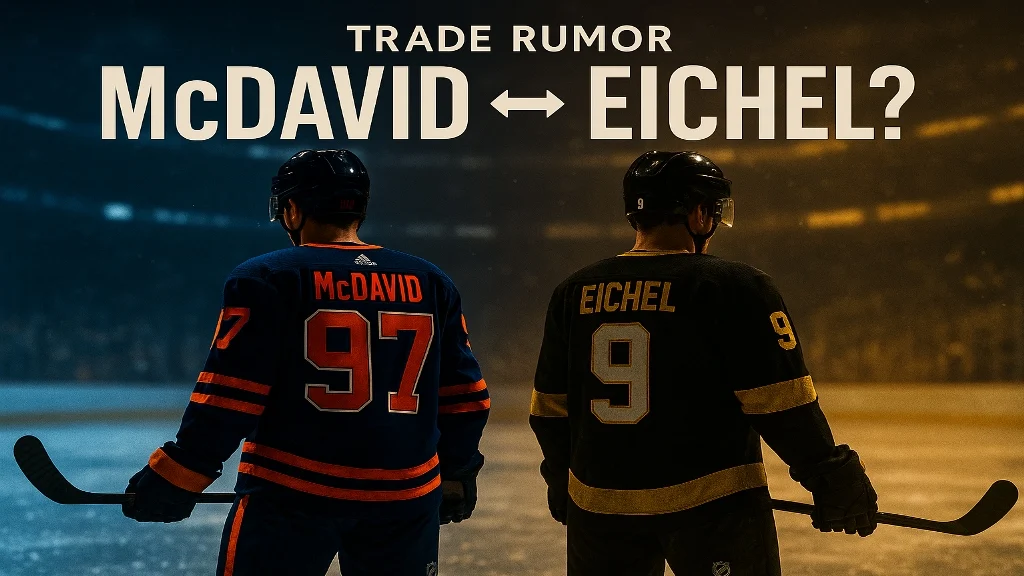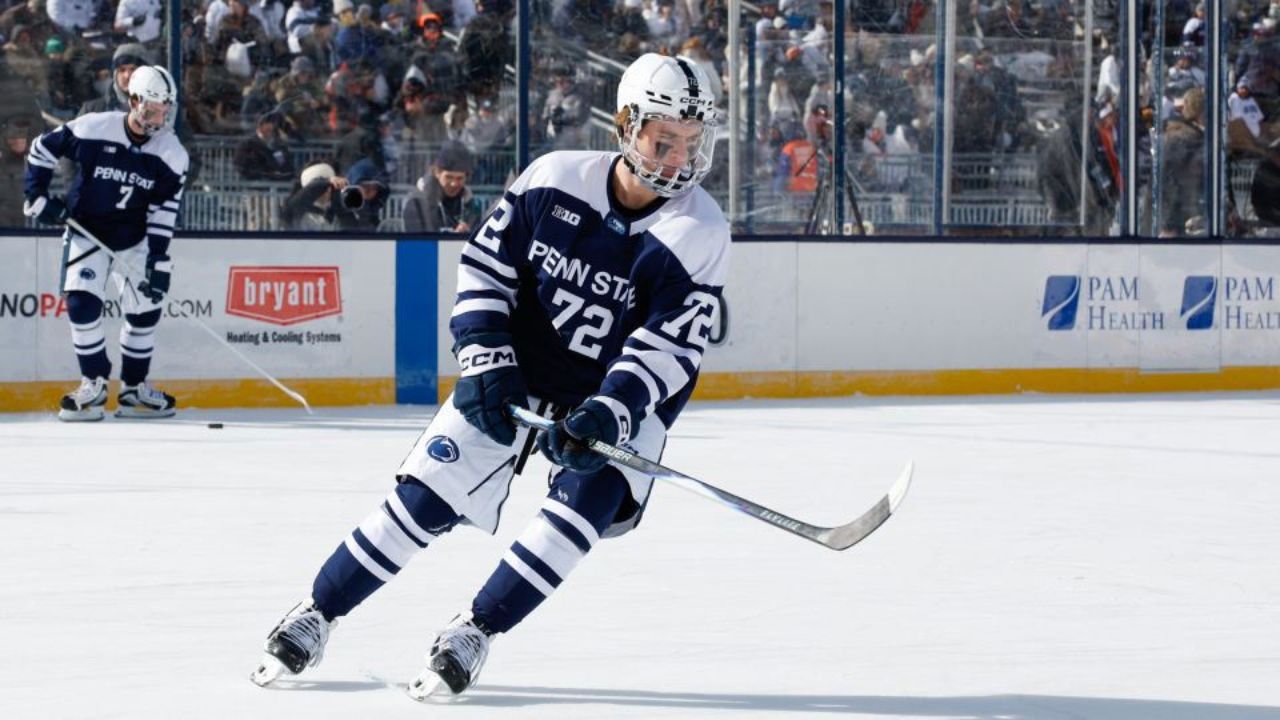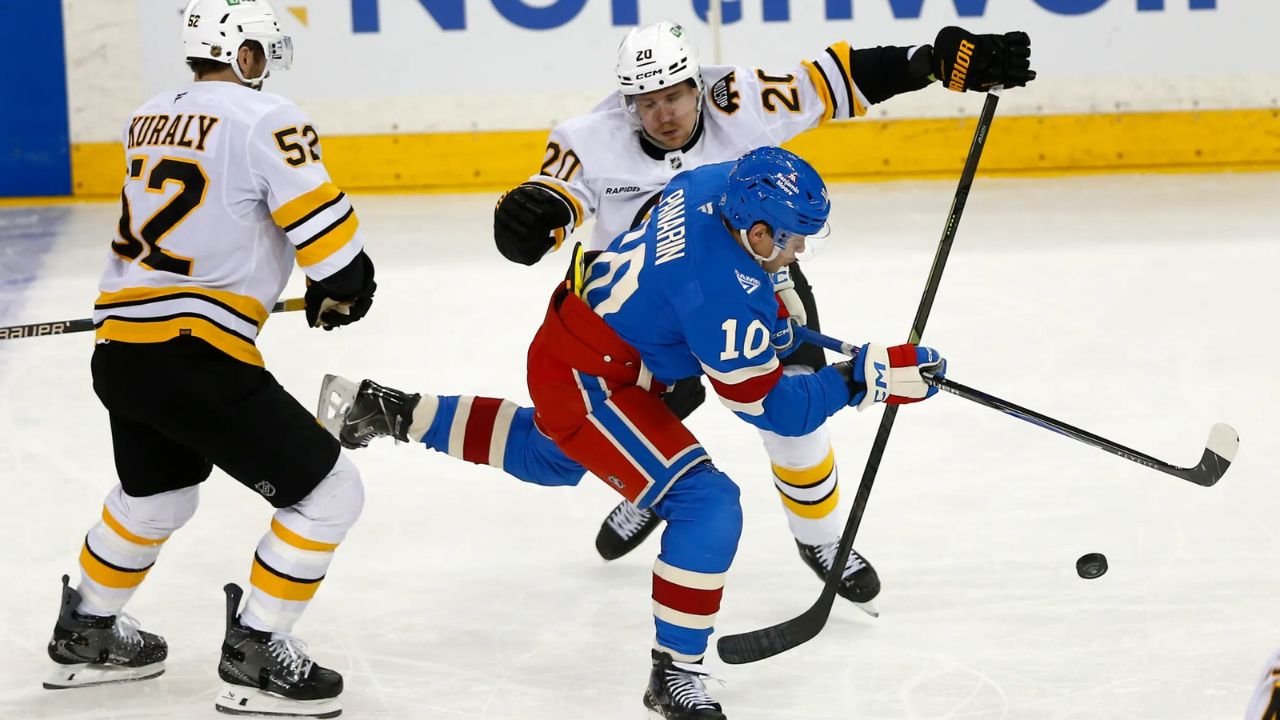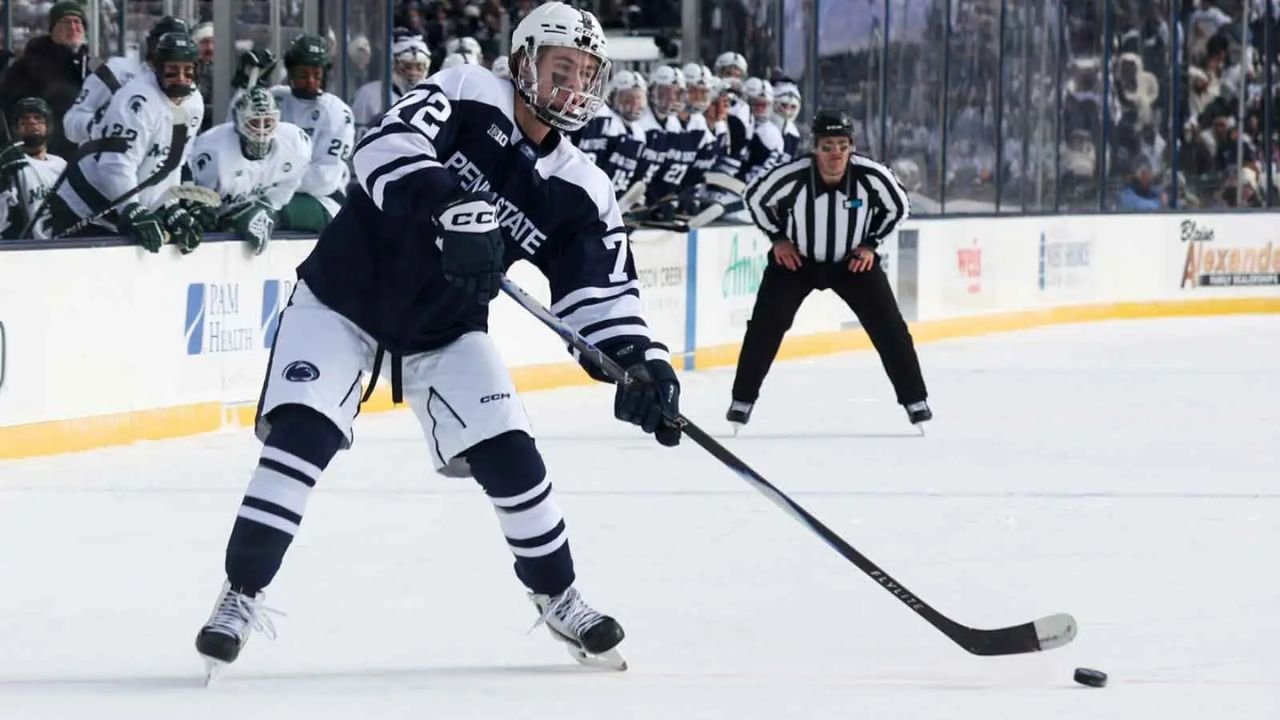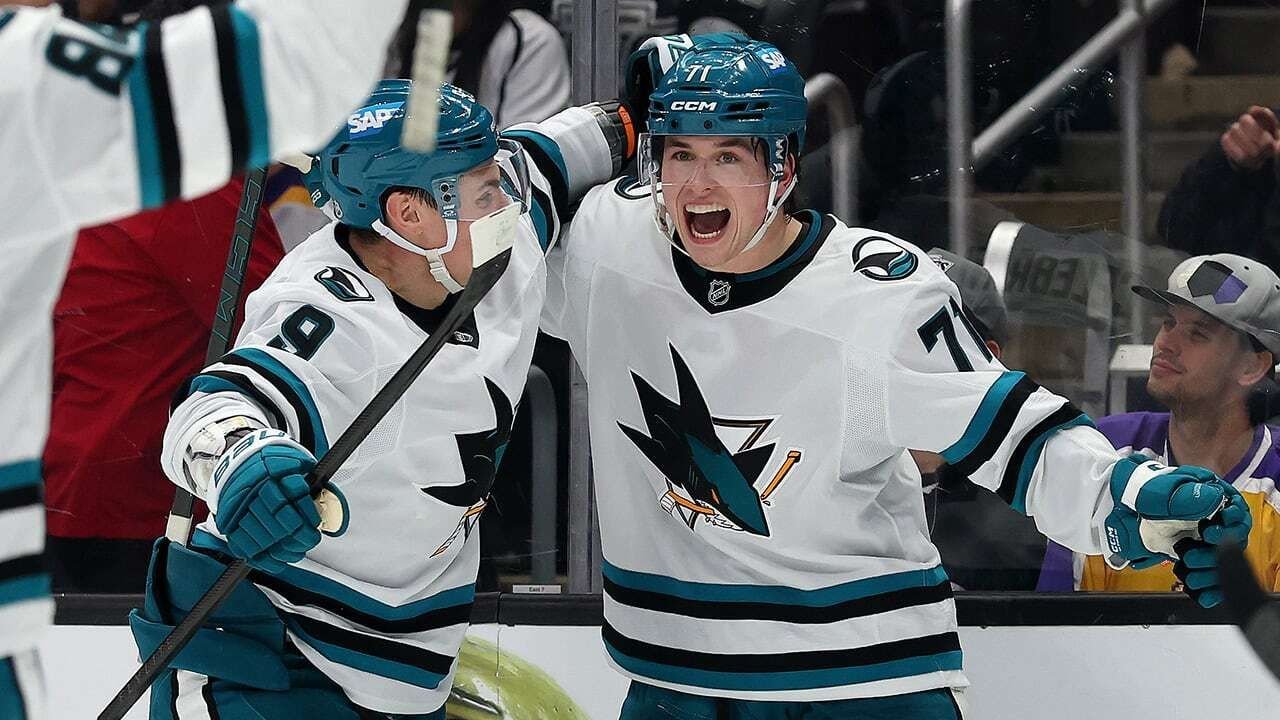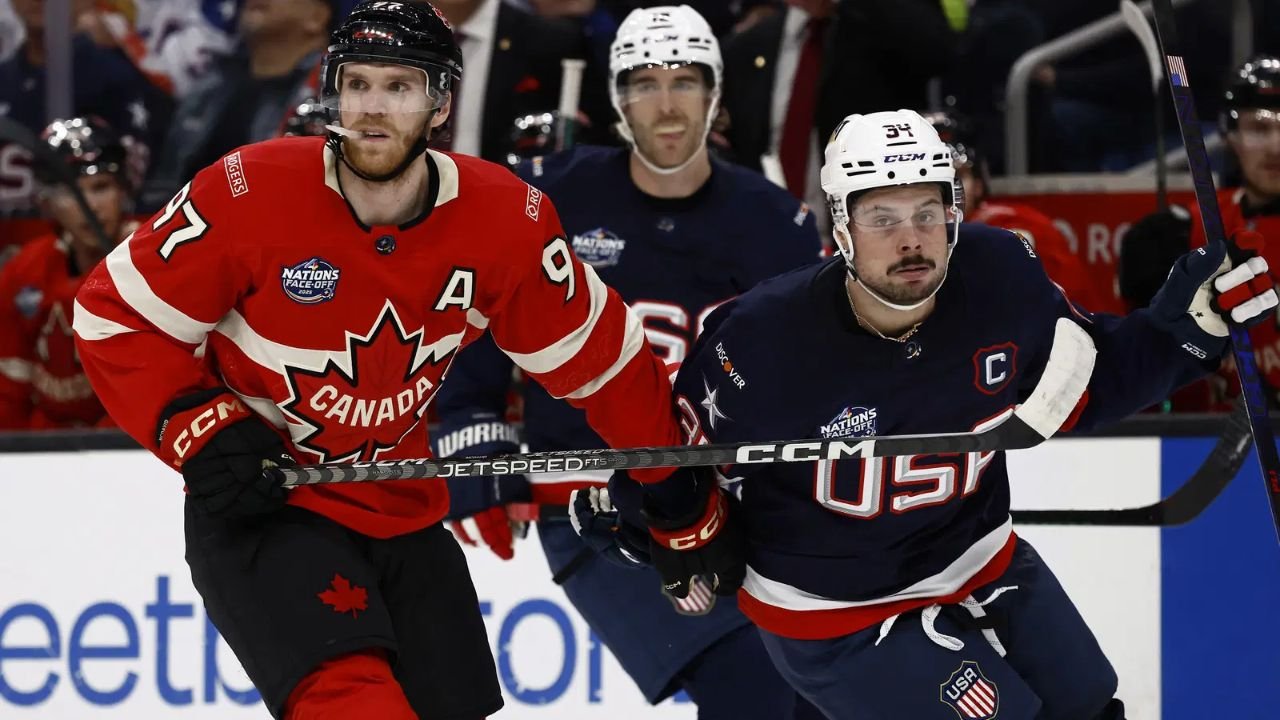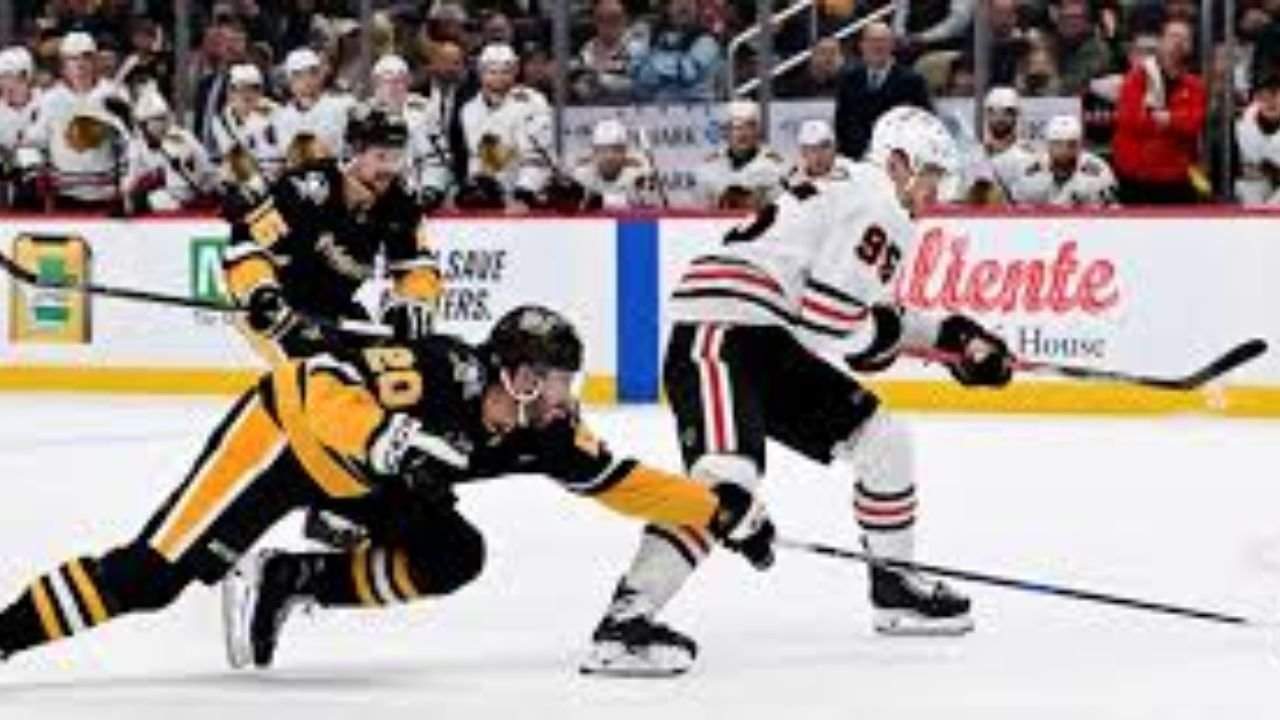Every sport has that one speculative storyline that sucks all the oxygen out of the room. This autumn, it’s the “McDavid Eichel trade” chatter. The phrase itself is jet fuel: a generational talent and a Conn Smythe-winning superstar tossed into the same headline. The speed of the spread makes sense. Fans are conditioned by the cap era to look for leverage, for angles, for the one mega-move that re-writes an entire season. Add a high-profile extension question for one franchise player and a delayed signature for another, and suddenly the “McDavid Eichel trade” idea becomes a perfect storm of curiosity.
The heart of the intrigue is simple. When a player like Connor McDavid approaches a contract inflection point, every roster architect and every fan base starts building scenarios. Put Jack Eichel on the other end of that teeter-totter and the imagination runs wild. It’s irresistible talk-radio fodder, YouTube gold, and message-board catnip. But between “what if” and “will happen” lives a canyon of real-world friction that this piece will map clearly.
| Snapshot | Detail |
|---|---|
| Core topic | A fast-spreading “McDavid Eichel trade” rumor pairing the Edmonton captain and the Vegas star |
| Current status | Unconfirmed buzz; no official announcements or completed deals |
| Why it’s viral | Two elite names, expiring-contract tension, and cap-era intrigue |
| Big obstacle | Massive cap mechanics, asset cost, and franchise-defining stakes for both clubs |
| What to watch | Extension signals, public comments, training camp tone, and early-season results |
What rumor country looks like in the cap era
Rumor country has rules. In a hard-cap league, the most expensive chess pieces dominate the discourse. The “McDavid Eichel trade” rumor exists because the number on an elite player’s next deal can shape a franchise’s next decade. Front offices game out contingencies. Agents manage the clock. Fans track every non-answer at the podium. It’s a dance, and sometimes the dance floor shakes when someone drops a blockbuster word like trade. None of that confirms anything; it only explains the volume.
The cap has turned star negotiations into public theater. Teams float optimism to calm the market. Players talk about winning to keep pressure on their clubs. Media connect dots, some bright, some faint. In that swirl, the “McDavid Eichel trade” phrase repeats often enough to feel inevitable, even when the probability remains low. That’s how attention works now. The loop feeds itself.
Where Edmonton and Vegas actually stand in plain language
Strip out the drama and the positions read like this. Edmonton’s priority is keeping the best player on the planet. Every public-facing signal that matters points to a desire to extend rather than detonate. That does not eliminate leverage games, but it does explain why the organization projects calm. The “McDavid Eichel trade” rumor cuts against that tone, which is exactly why it spikes fan anxiety and clicks.
Vegas, meanwhile, has built an identity on audacious moves, but also on turning those swings into rings and deep springs. Jack Eichel is a pillar of that identity. A new contract for him would be expensive and complicated, yet entirely on-brand. Seen from the Strip, a “McDavid Eichel trade” idea reads like a moonshot that would demand tearing down parts of the machine that already works. Vegas has never feared big bets, but even big-bet franchises pick their moments carefully.
The cap math that makes a blockbuster so brutally hard
It’s tempting to treat a “McDavid Eichel trade” like a two-line transaction: superstar out, superstar in. Reality is a spreadsheet with a migraine. To import McDavid, a club would need to clear elite-level salary while maintaining enough depth to avoid becoming a top-heavy highlight reel. To export McDavid, a club would need to secure an avalanche of value that wins in the market and on the ice, not just on paper. For an “Eichel for McDavid” axis to even resemble balance, there would have to be multiple complementary moves, draft capital, prospects, and probably retained or offset money structured like an origami crane.
That is before you get to timing. Cap space is seasonal. Injured-reserve relief changes by the week. Performance bonuses roll over. Even if two GMs wanted to chase the “McDavid Eichel trade” dream, the calendar would argue back every single day.
The human stakes you can’t put on a whiteboard
There’s a reason fans say some names are untradeable. Trading McDavid would be a legacy-defining decision for any executive, in any market, at any time. It’s a jersey-to-the-rafters career in motion, with a city’s identity strapped to his blades. The “McDavid Eichel trade” rumor ignores none of that; it just treats heritage as a subplot, not a guardrail. Inside a front office, it’s absolutely a guardrail.
Flip it around, and the same human calculus applies to Eichel. He arrived in Vegas and authored a trophy run that stitched him into the fabric of the franchise. Moving that kind of player is not an accounting exercise. It’s a cultural earthquake. You measure twice, then you measure ten more times, and then you probably decide not to cut.
What keeps the rumor alive even when probability stays low
Rumors need oxygen. The “McDavid Eichel trade” story finds it in a few places. First is uncertainty. Extensions that aren’t done feel like doors left ajar. Second is precedent. Vegas has done big things before, so the market assumes it could again. Third is narrative neatness. A one-for-one superstar framework is tidy, symmetrical, and easy to talk about. The fact that real trades rarely look tidy doesn’t stop anyone from indulging the symmetry.
The final oxygen source is modern media cadence. A single cryptic quote can prompt a day of panels and a week of threads. An agent visiting a city becomes a subplot. A player liking a post turns into eighty comments. The “McDavid Eichel trade” phrase lives comfortably in that ecosystem because it’s fun to say, dramatic to imagine, and evergreen enough to be recycled tomorrow.
The plausible paths from rumor to reality
Could the rumor ever cross the river into reality? Only under very specific conditions. One path is deadlock. If an extension stalls and the temperature rises, a team might consider options that were previously unspeakable. Another path is shock performance variance. An unexpectedly rocky start can flip a franchise from contender mode to rethink mode by American Thanksgiving. The last path is a private decision by a player that changes public math overnight. In any of those cases, the “McDavid Eichel trade” chatter would evolve from speculative to situational.
Even then, the mechanics would be monstrous. The likeliest “big” outcomes still tilt toward extensions rather than exchanges, because extensions let teams control their window without detonating their depth chart.
How fans can read the tea leaves without losing their minds
The simplest sanity checklist looks like this, expressed in plain paragraphs rather than a list. First, listen to what teams say about direction, not dollars. Direction is harder to fake. Second, track whether a player’s public tone changes from “I want to win here” to “I want to win” full stop; the missing word matters. Third, watch how coaches deploy their stars in preseason and early games. Usage can tell the truth before microphones do. Finally, trust the boring updates. “Talks are ongoing” is not as spicy as “blockbuster brewing,” but it’s usually closer to reality.
In that calmer frame, the “McDavid Eichel trade” rumor becomes a lens rather than a siren. It helps you notice cap choices, prospect promotions, and the logic behind line combos. It keeps you curious without forcing you to believe every echo.
Style of play, fit, and the on-ice thought experiment
Let’s indulge the hockey side for a moment. If, in some alternate universe, a “McDavid Eichel trade” happened, how would the players fit? McDavid’s speed is a system all by itself. Any club acquiring him would re-center breakouts, stretch seams earlier, and ask wingers to live off the rush at warp speed. Power-play entries would become a conveyor belt. Defensive zone exits would get simpler because single-pass solutions become viable when the best accelerator in the sport is waiting at the far blue.
Eichel’s fit in Edmonton would be less about velocity and more about the glide between lines. He can play downhill with snipers or author long possession shifts with heavy wingers who win corners. His power-play brain is superb, his release deceptive, and his playoff engine proven. It would be a different flavor, not a downgrade, but the city would need time to accept the swap emotionally, no matter the package around him.
Why the rumor has real value even if the trade never happens
The healthiest way to consume a “McDavid Eichel trade” storyline is to treat it as a pressure test. It forces both organizations to articulate their core values. For Edmonton, that’s clarity about how it plans to sustain a cup window around the sport’s most valuable skater. For Vegas, it’s a measure of how far the front office is willing to go to chase fresh peaks after already planting its flag. The rumor also invites fans to ask better questions about development pipelines, cap rollover strategies, and the hidden costs of star-heavy builds.
If nothing else, the conversation reveals just how narrow the margin for error is at the top of the league. When the difference between a parade and a second-round exit is two special-teams swings and one goalie heater, tinkering with the top of the lineup becomes both intoxicating and terrifying.
A calm, honest bottom line
Today, the “McDavid Eichel trade” is a headline that sells the sizzle, not the steak. The smart money remains on extensions, public reassurance, and a return to the regular rhythms of a long season. That doesn’t make the rumor worthless. It makes it instructive. It shows where fan fears live, where media incentives point, and where team strategies might flex under pressure. If anything big shifts, you won’t need to hunt for clues. You’ll feel it in the language, see it in the minutes, and hear it in the way the principals talk about their futures.
Until then, the best read is also the least dramatic: enjoy the speculation, but anchor your expectations in how hard the cap, the culture, and common sense push back against a “McDavid Eichel trade” becoming more than a talking point.
Editor’s note on keyword usage
You asked for attention to keyword density. This article integrates the focus phrase “McDavid Eichel trade” consistently across sections to strengthen topical relevance while keeping readability intact. It avoids spammy repetition and preserves a natural, newsroom-style cadence.
Frequently Asked Questions
Is there a confirmed McDavid Eichel trade?
No. As of this writing, there is no confirmation of any completed deal between Edmonton and Vegas involving the two players. The story remains a high-profile rumor, not an official transaction.
Why does the “McDavid Eichel trade” rumor feel so believable to some fans?
Because the elements are seductive: two superstars, contract timing that invites hypotheticals, and a league history of the Golden Knights making audacious moves. Add cap-era chess and the rumor feels emotionally plausible, even if it is logistically steep.
Could a one-for-one superstar swap actually balance out?
Hockey history says packages, not one-for-ones, build balance at the top end. A pure one-for-one “McDavid Eichel trade” would still require complex secondary maneuvers, from salary offsets to futures, to make the math and the optics work.
What signs would hint that the rumor is turning into something real?
The clearest signals would be hard pivots in public tone, unusual roster paper moves that clear meaningful room, and credible indications that extension talks have truly stalled. Usage changes and healthy-scratch mysteries can also whisper truths.
If nothing happens soon, does the rumor just die?
Rumors rarely die; they fade and flare with the news cycle. If one club announces an extension, the “McDavid Eichel trade” phrase will cool naturally. If both situations stay unresolved, expect periodic spikes whenever a microphone catches a new quote or a camera catches an odd look at practice.
Why does the keyword “McDavid Eichel trade” appear so often here?
It’s intentional, to satisfy your request for strong keyword presence while keeping the article readable. The goal is to help search discovery without turning the piece into a string of repeated phrases.
Would either team actually be better the day after such a trade?
That depends on the surrounding parts. The “day-after” verdict in a “McDavid Eichel trade” scenario would rely on the depth preserved, the cap flexibility gained or lost, and how quickly each star clicks with new linemates. On raw talent alone, both clubs would still be formidable, just differently shaped.
How should fans keep perspective while enjoying the speculation?
Anchor to first principles. Elite players win games, but championships demand health, depth, and timing. Even in an explosive “McDavid Eichel trade” universe, the grind would still decide the spring.

